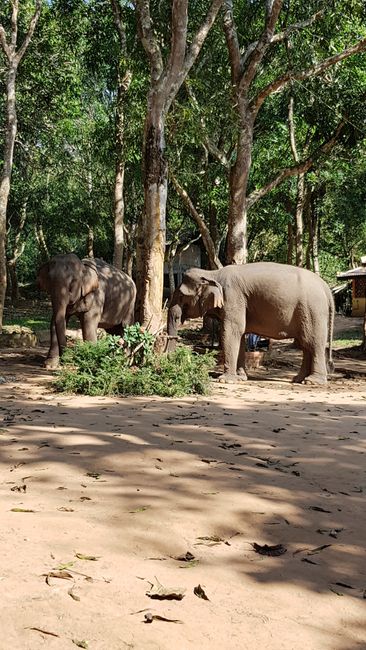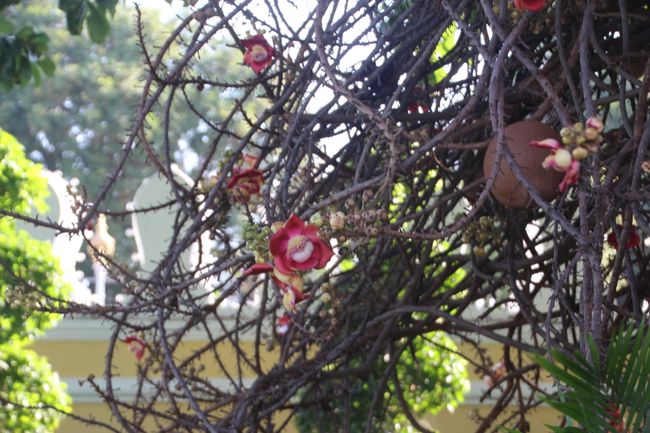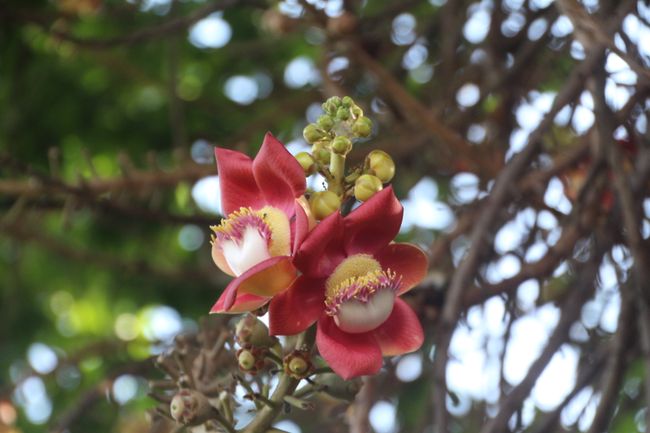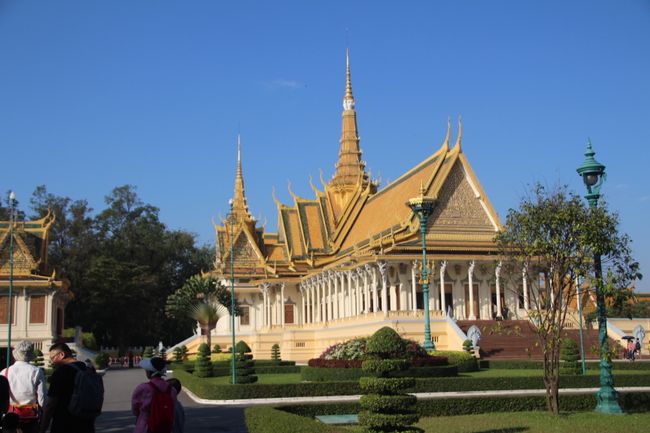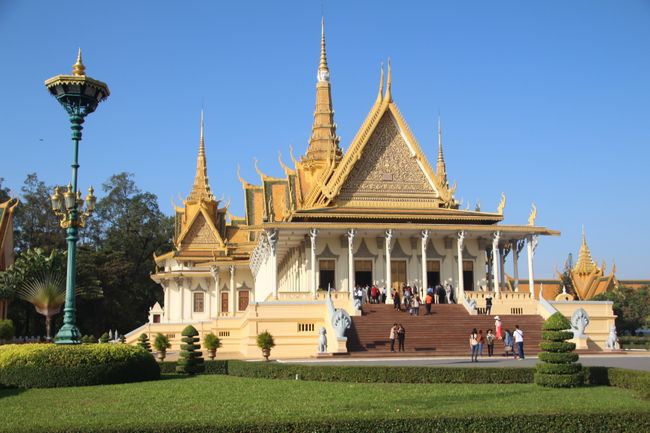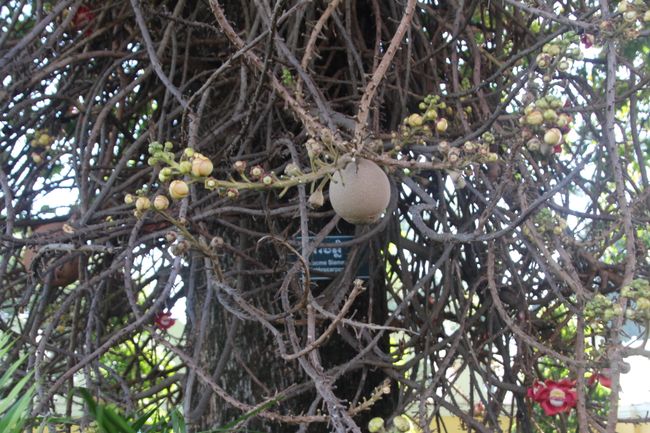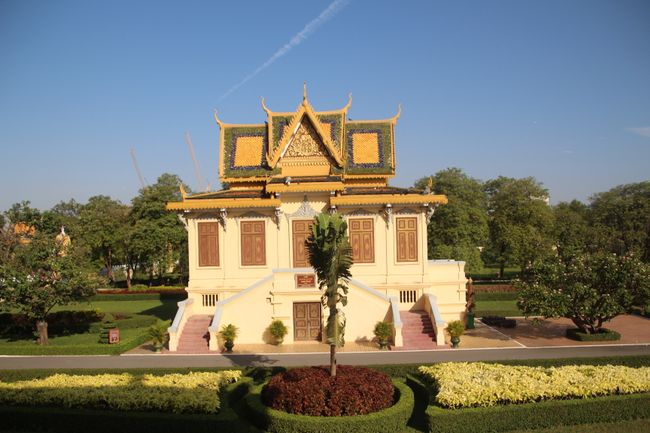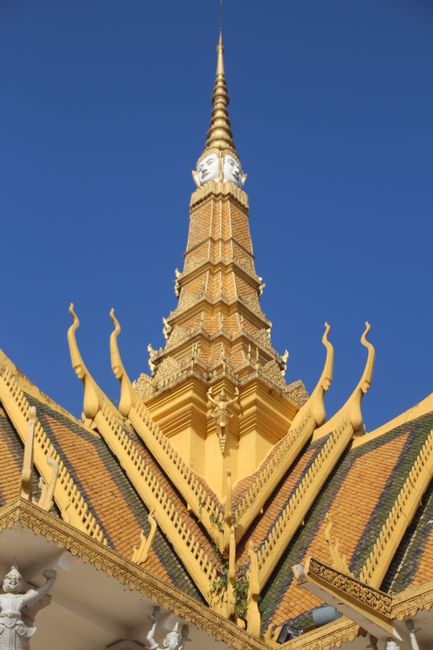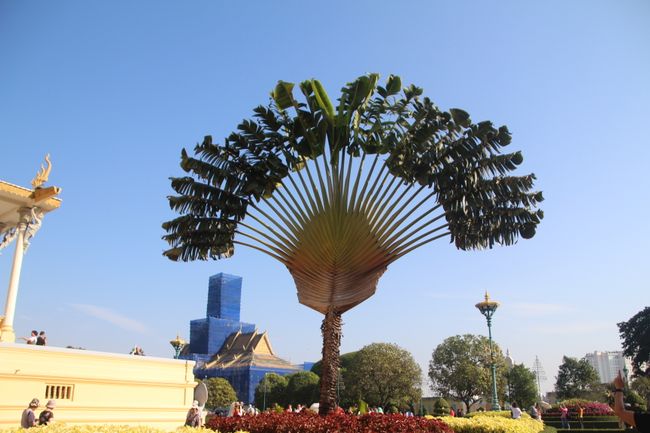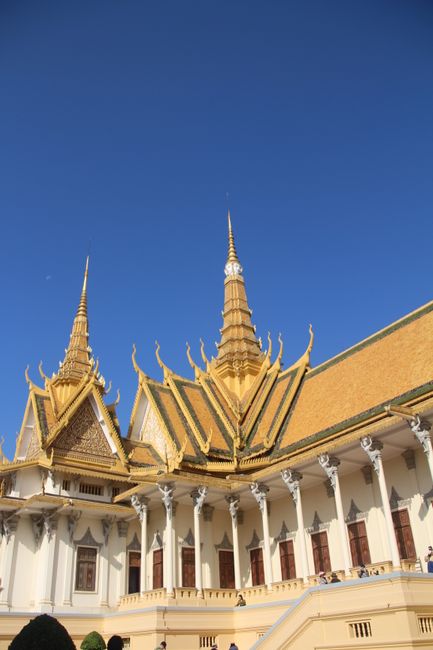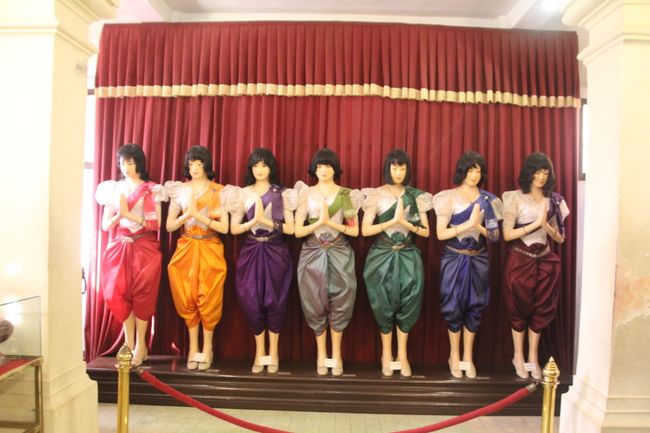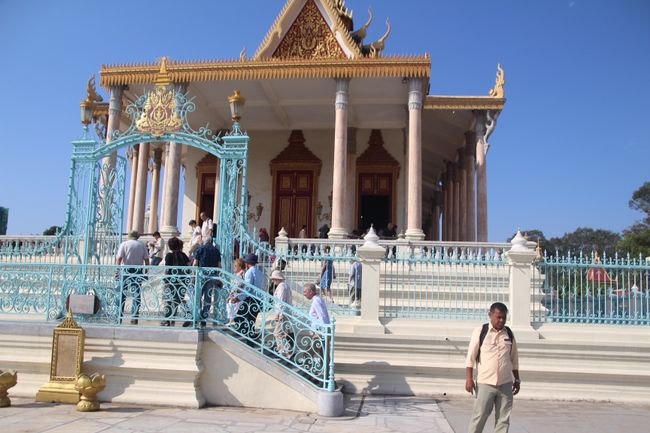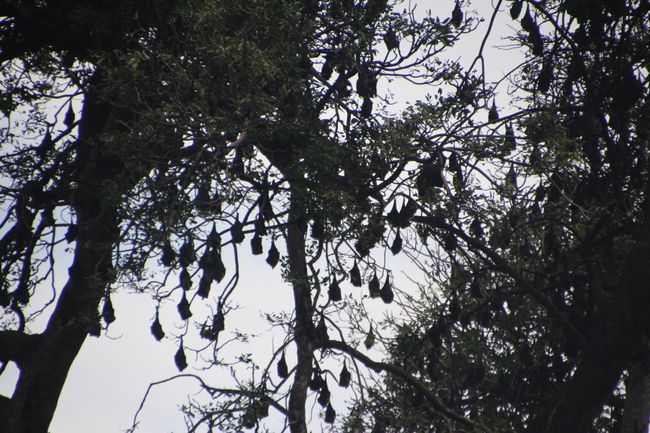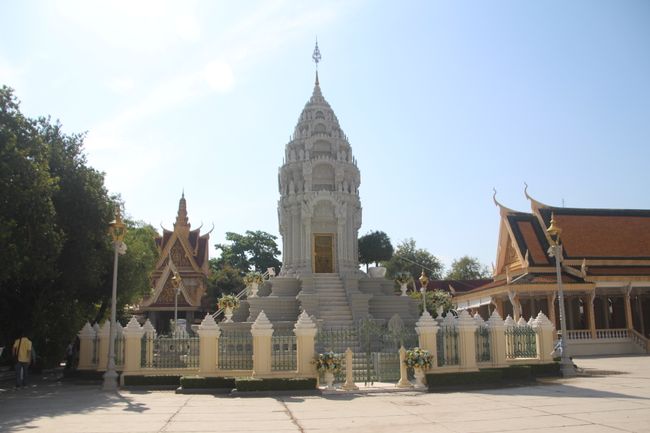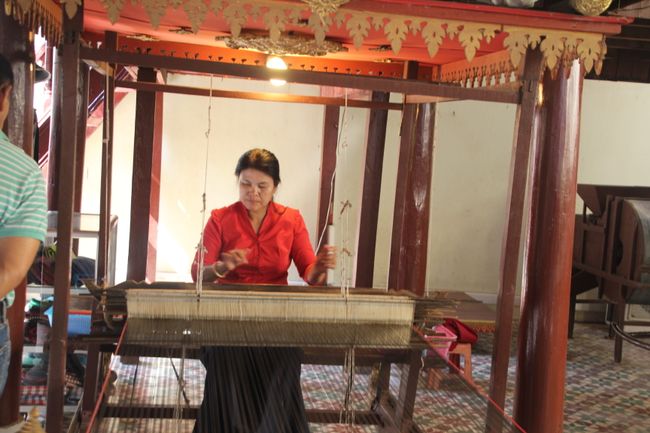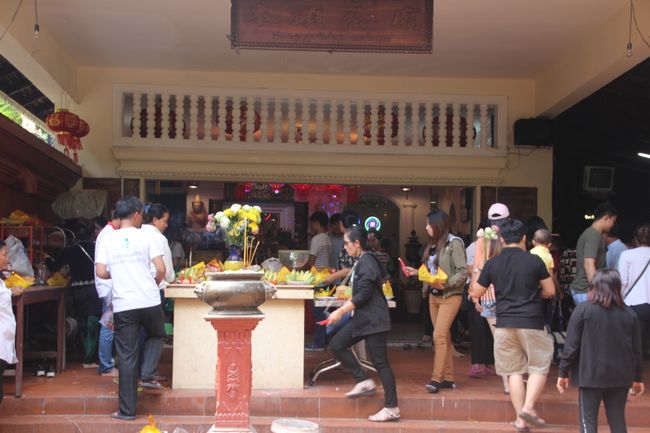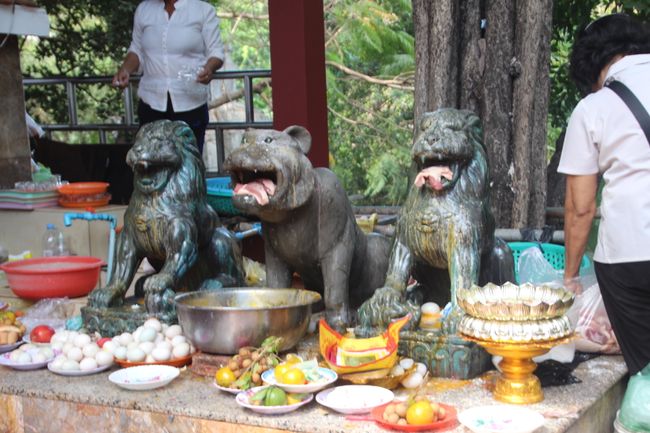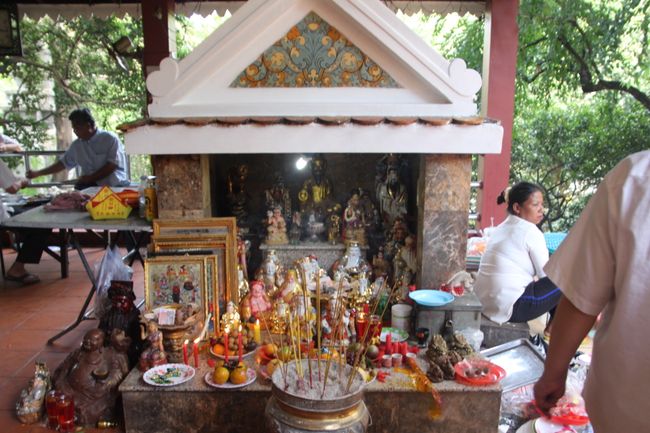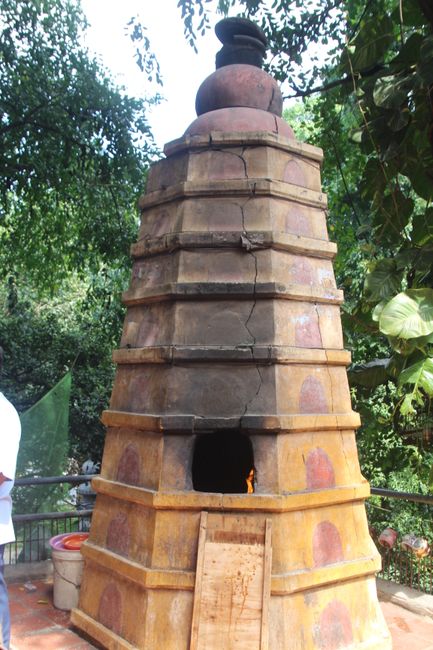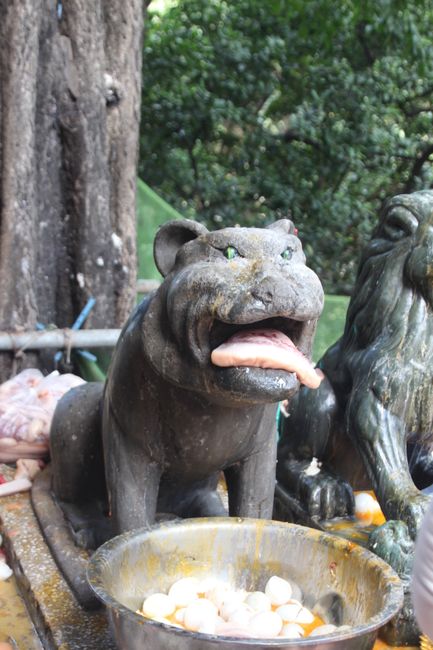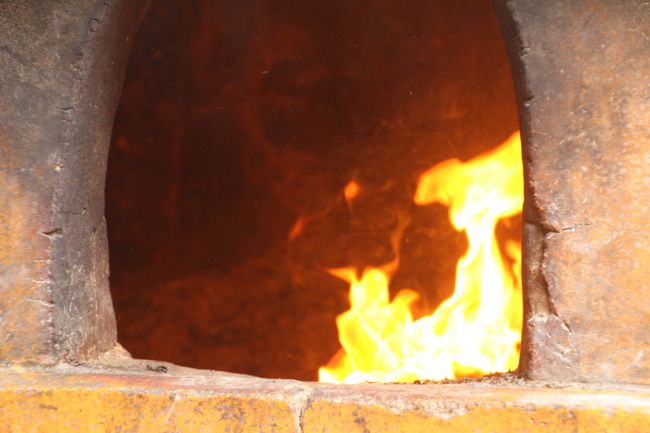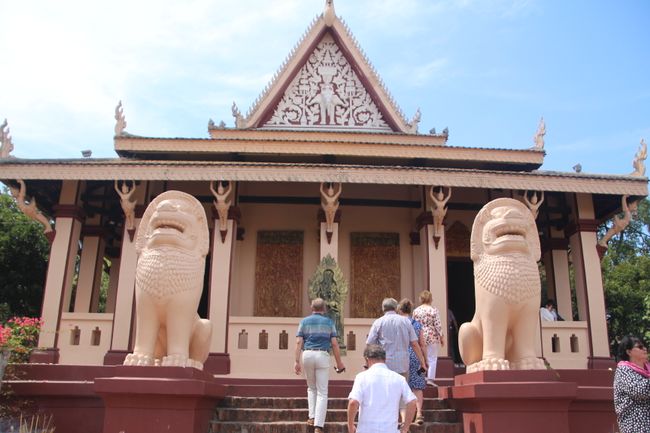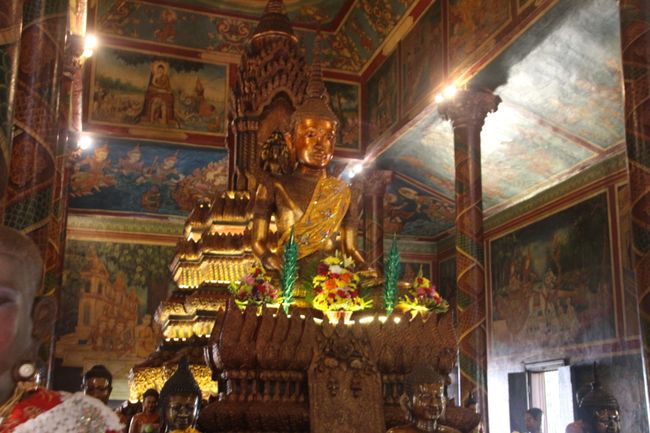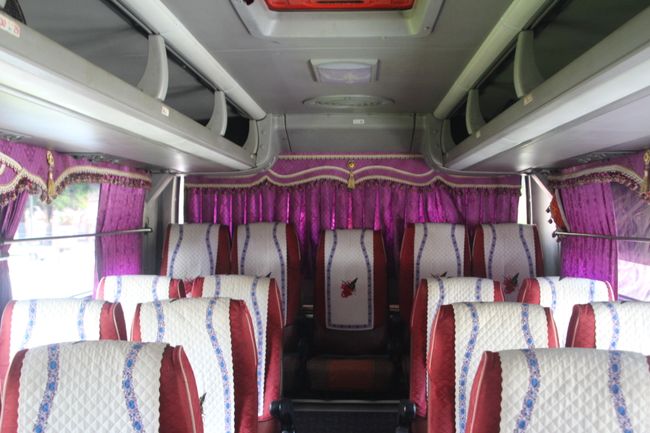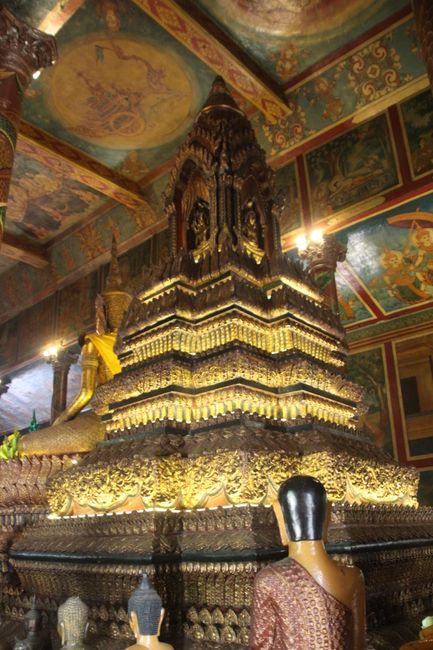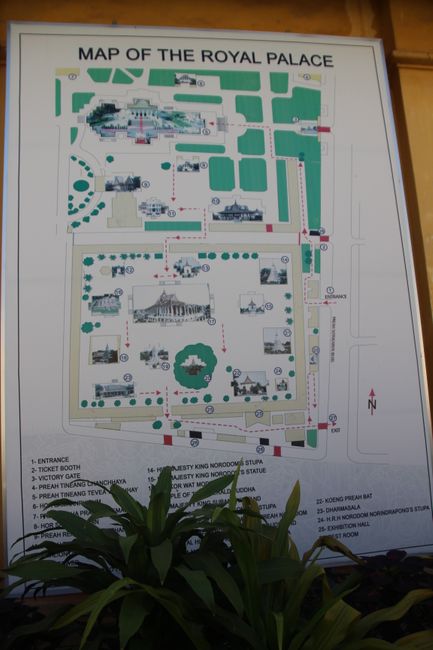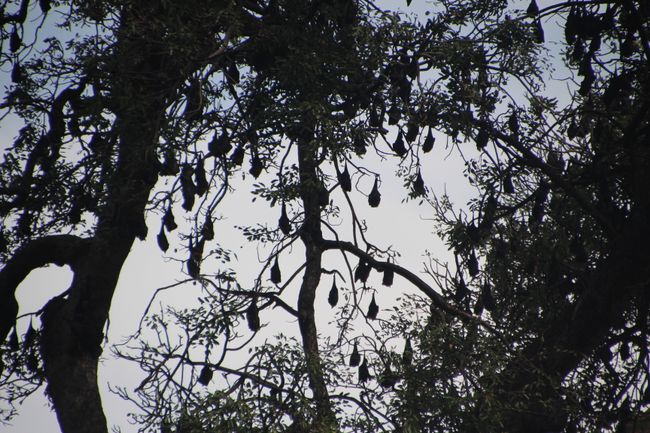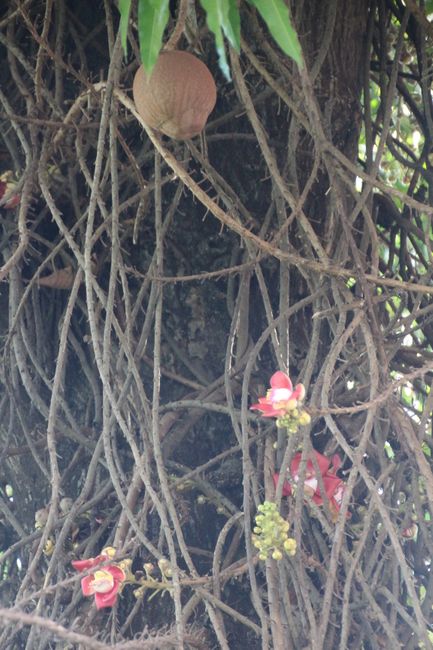Phnom Penh
প্ৰকাশিত: 28.01.2019
নিউজলেটাৰ চাবস্ক্ৰাইব কৰক
The name of the city dates back to a legend: The wealthy widow Penh is said to have found five Buddha statues on a mountain (=Phnom) and built a temple complex around them. Our visit began there. It is a typical Vietnamese-Chinese temple visited by many people. The pictures show how offerings are made there. Among other things, people bring meat and eggs or buy them there. The eggs are baked by monks into figures, the meat is placed in the mouth of the figures, where it remains for about 20 minutes. After that, the worshipers can take it home and eat it. The ceremonies are directed towards the ancestors, who are meant to be well. This also includes having food to eat. The pictures also show the many banknotes and other offerings. By the way, these also include paper cars and paper houses, which are burned in temples and their smoke is said to rise to the ancestors.
Here, too, we noticed the many young monks again. Apparently, there are no concerns about the next generation - unlike with us. However, there is an important difference: becoming a monk is temporary; that means it is common for young people to go to a monastery for a certain period of time. It is also customary to visit the monastery for prayer and meditation for a few days after the father's death.
One of the highlights of our visit within the palace was the Silver Pagoda, with its floor covered in solid silver plates. Unfortunately, we were not allowed to photograph the Buddha figure made of solid gold. The eyes are made of precious diamonds, which can also be found on the hands. Surprisingly, the Khmer Rouge did not touch this figure, probably because they did not recognize its value. On the other hand, other objects disappeared.
We learned more about Cambodia's past at the National Museum, where objects from the pre-Angkor, Angkor, and post-Angkor periods were exhibited.
The visit to the torture prison was sobering, where the Khmer Rouge tortured people in the worst possible ways to obtain information. They were detained for trivial reasons and ultimately executed. There are hardly any survivors. The tortures were often carried out by child soldiers who were considered particularly cruel. We spare you the pictures.
After visiting the Russian market (lively, crowded, smelly; but it has everything), we went to the hotel.
In the evening, a long walk took us to the riverside, where we even got to see a fireworks display.
নিউজলেটাৰ চাবস্ক্ৰাইব কৰক
উত্তৰ

